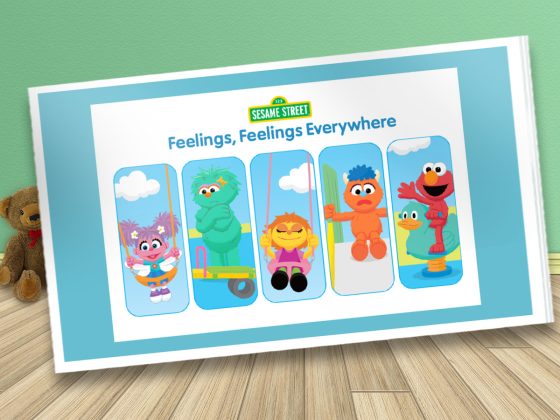
Feelings, Feelings, Everywhere
Everyone has different feelings, at different times, for different reasons—and all our feelings have a place.
Storybook by Ann Thomas, LCSW, The Children’s Place
As you share this story with children, you might:
- Talk about each of the many feelings that the characters are feeling at different points in the story.
- Look closely at their bodies and faces: what feeling clues can we find?
- Name similar words for each feeling (for instance, other words for happy: joyful and delighted).
- Take turns making the faces and demonstrating the body language of each character.
- Point out that sometimes friends feel different things and that all their feelings have a place on the playground.
- Explain that we experience our feelings for a reason; they tell us about something that matters to us. Remind children that you will always care for them through all their different feelings!
- Remind little ones that caring grown-ups are there to help them with their feelings, like the daddies did in the story.
The friends experienced so many feelings (listed below in order) throughout the story. Explore these feelings with your child, including when they (or you!) have felt these ways:
- Excited: We feel excited when we are happy and our body has lots of energy.
- Our bodies may feel light. We might feel like we have extra energy in our body.
- Clues that someone may be feeling excited: They may be smiling, waving their arms, laughing, squealing, bouncing, or jumping. Their eyes may be wide, and they may be raising their eyebrows.
- Calm: We feel calm when we are relaxed and peaceful.
- Our bodies may feel relaxed and rested. We might notice our slow, steady breathing.
- Clues that someone may be feeling calm: They might be in a relaxed position or moving gracefully.
- Happy (and Joyful): We feel happy when we feel calm inside. Another word for happy is delighted.
- Our bodies may feel relaxed and energized. We might feel “light on our feet” and warm in our hearts.
- Clues that someone may be feeling happy: They may be singing, squealing or shouting for joy!
- Disappointed: We may feel disappointed when something doesn’t happen the way we wanted it to.
- Our bodies may feel tense or like we can’t sit still.
- Clues that someone may be feeling disappointed: They may be sighing or drooping their chin and shoulders.
- Sad: We feel sad when something makes us unhappy. Sadness often makes us want to cry and be cuddled or be quiet and alone.
- Our bodies may feel uncomfortable, tight, or small. We may have teary eyes or hot faces.
- Clues that someone may be feeling sad: They may be quiet or have drooping shoulders and a frown. They might be crying or covering their face with their hands.
- Scared: Scared is a feeling that something bad is going to happen.
- Our bodies may feel extra hot or cold. We might notice our hearts beating faster or our breath getting quicker.
- Clues that someone may be feeling scared: Their eyes may be wide or they may be a little shaky or tense. They may be hiding or having big reactions to sudden movements or noises.
- Nervous: We feel nervous when we feel unsure about something.
- Our bodies may feel jittery or tense. We may notice faster breath or a tight feeling in our jaws or chests.
- Clues that someone may be feeling nervous: They may be squeezing their hands or pacing.
- Proud: When we feel proud, we feel joyful about who we are, something we did, or something someone else did.
- Our bodies may feel relaxed or energized. We may feel warm inside and be smiling.
- Clues that someone may be feeling proud: They may be standing tall and strong. They might smile or clap their hands for others.
- Confident: We feel confident when we know that we can do something.
- Our bodies may feel strong and energized. We may be standing tall and feeling relaxed.
- Clues that someone may be feeling proud: They may have a strong voice and be standing tall.
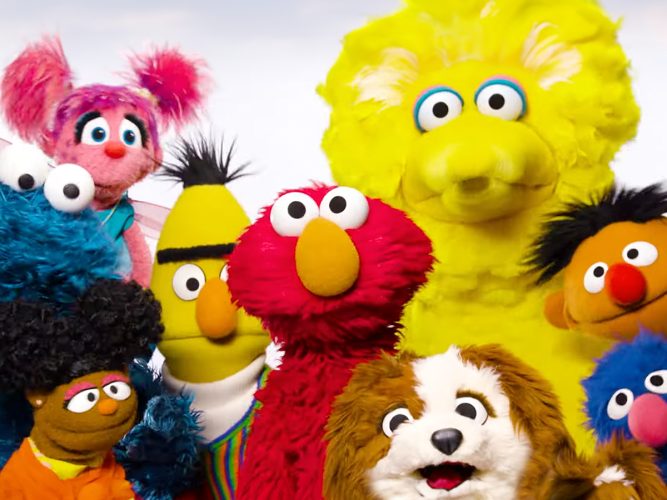
Hum Along to Sunny Days With Elmo and Friends
A video about the power of humming.
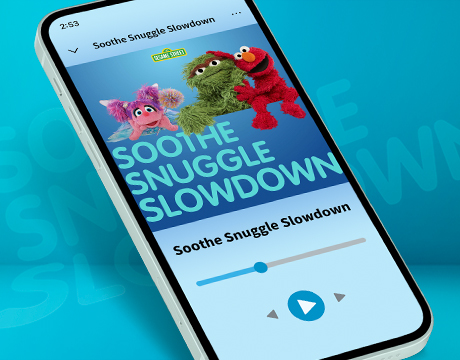
Soothe Snuggle Slowdown: Songs and Strategies for Restful Sleep
This curated playlist helps little ones (and their tired grown-ups) relax and unwind! A mix of mellow tunes sets the mood for naps, bedtime… or just some much needed down time.

Mindful Caregivers
Practicing mindfulness is a great way to slow down and reset.

What Mental Health Specialists Want Parents to Know About Anxiety
An article for parents about childhood anxiety

When You’re Concerned About Your Child’s Mental Health
An article for parents concerned about children’s mental health.
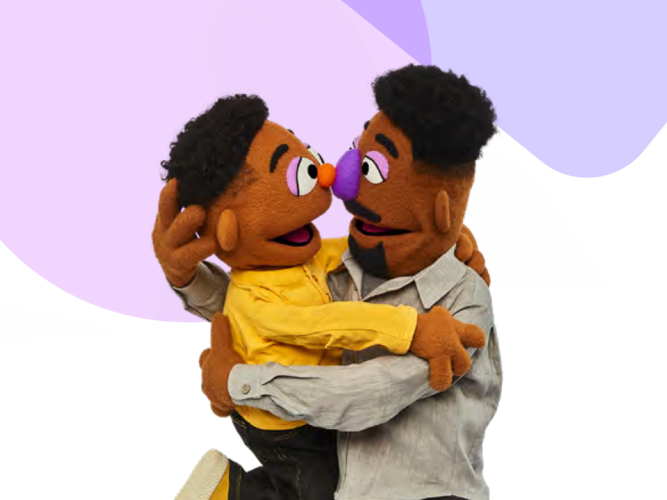
Mental Health Resource and Support List for Parents
If you’re concerned about—or considering seeking professional support for—your child’s emotional well-being, there are lots of resources just for you.
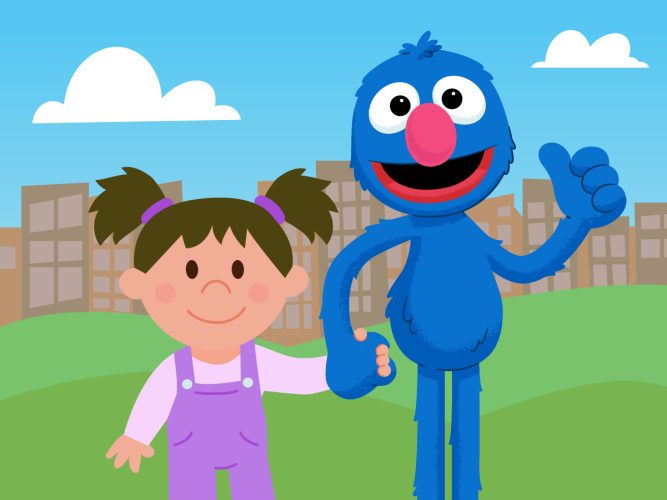
Components of Community: Creating Social Connections to Address Mental Health
